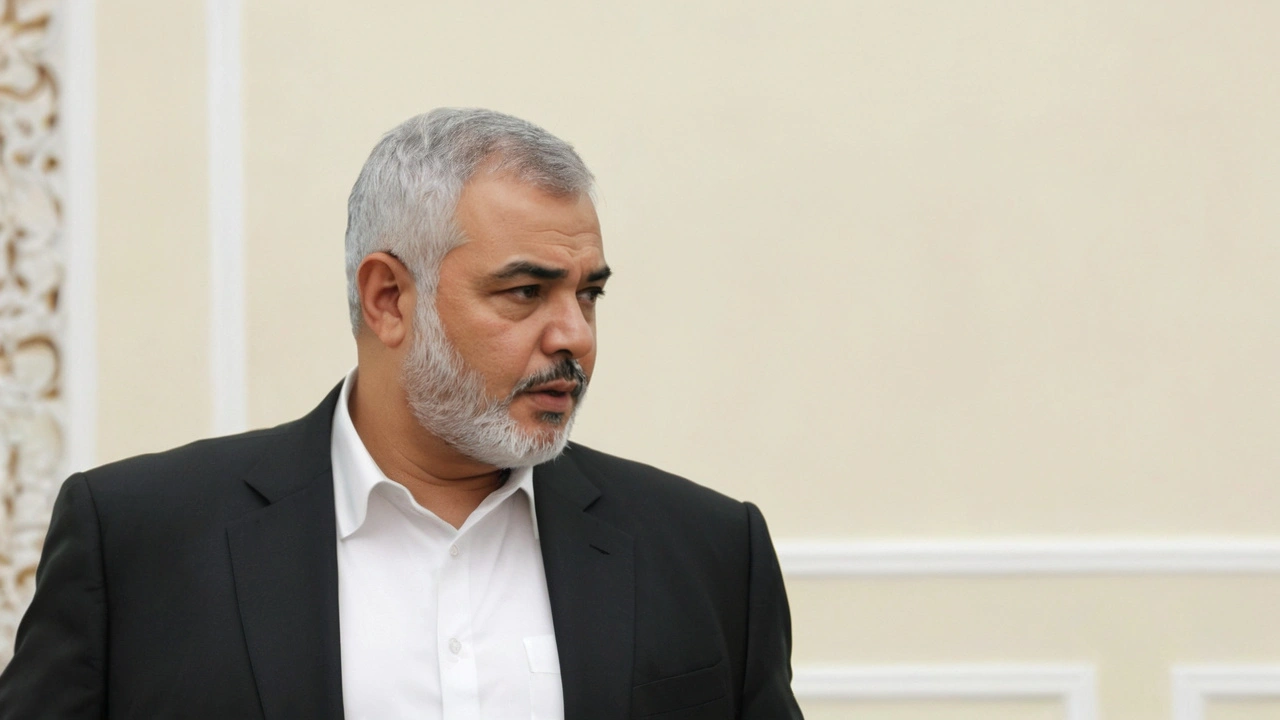Introduction
In a dramatic escalation of the long-standing conflict between Israel and Hamas, Ismail Haniyeh, one of the most recognized faces of the Palestinian militant group, was killed in an Israeli airstrike in Tehran early Wednesday morning. The 62-year-old leader had been residing in self-imposed exile in Qatar but often frequented key Middle Eastern countries like Turkey and Iran, making headlines wherever he went.
A key Figure in Hamas
Ismail Haniyeh was no ordinary member of Hamas; he had been intricately involved with the group since its inception in 1987. Born on January 29, 1963, in the Shati refugee camp in Gaza, Haniyeh rose through the ranks to become a pivotal figure in Hamas' political and diplomatic efforts. He was widely known as the public face of the organization, which has been listed as a terrorist group by Israel, the United States, and the European Union.
Political Influence
Haniyeh's political acumen was instrumental in Hamas' significant electoral win in 2006, an event that led him to serve as the prime minister of the Palestinian government. His role expanded further when he became the head of Hamas' political bureau in 2017. Although he was less involved in the group's military operations, Haniyeh’s diplomatic efforts helped cement ties with influential regional players like Iran and Turkey.
Exile and Assassination
Since 2019, Haniyeh had been living in exile in Qatar but maintained an active travel schedule, frequently visiting Iran and Turkey. His presence in Tehran was linked to the inauguration ceremony of Iran's new president, showcasing his diplomatic engagement even while in exile. However, it was this visit that ultimately led to his assassination in a targeted Israeli airstrike at his residence.

The Attack and Immediate Aftermath
The strike comes at a time of heightened tension following Hamas’ attacks on Israel on October 7, which resulted in over 1,200 deaths and the abduction of approximately 250 hostages. This brutal event has led to an escalation in the ongoing Israel-Hamas conflict, and Haniyeh’s death adds another layer of complexity to the situation.
Hamas has openly blamed Israel for the airstrike, and both Iran and the militant group have vowed to seek revenge. The heightened rhetoric and promises of retaliation could lead to more violence in a region already fraught with instability.
International Reactions And Sanctions
Ismail Haniyeh was a controversial figure on the international stage. Under U.S. sanctions and wanted by the International Criminal Court for war crimes and crimes against humanity, his leadership in Hamas came at great personal cost. Several of his family members had been killed in previous Israeli strikes, and he often spoke about the personal sacrifices he made for the Palestinian cause.
Implications For The Future
Haniyeh’s assassination could serve as a catalyst for further confrontations between Israel and Hamas. His absence leaves a vacuum in Hamas' leadership, potentially leading to internal power struggles within the organization. The group's future strategy may significantly shift depending on who steps into Haniyeh’s shoes.
Hamas' Response
In a statement released shortly after Haniyeh’s death, Hamas vowed retaliation. “The blood of our martyr will not go in vain. Response to this heinous crime will be swift and severe,” the group's spokesperson said. The pledge of retribution by Hamas has already begun to ripple through the peace efforts in the region, making it increasingly difficult to envision a near-term resolution to the decades-long conflict.
Haniyeh's Legacy
Ismail Haniyeh’s life and career left an indelible mark on Palestinian politics and the broader Middle Eastern geopolitical landscape. His ability to navigate the complex web of regional alliances and enmities made him a uniquely influential figure. However, his death also highlights the personal costs of his political journey. While many in the Palestinian territories mourn his loss, others view his actions and affiliations with skepticism.
Conclusion
The assassination of Ismail Haniyeh adds another grim chapter to the ongoing conflict between Israel and Hamas. As Israel remains silent on the allegations, the world watches with bated breath to see how this will impact the already volatile situation in the Middle East. Whether it leads to further escalations or becomes a turning point for peace remains to be seen, but for now, it’s clear that tensions are at an all-time high.